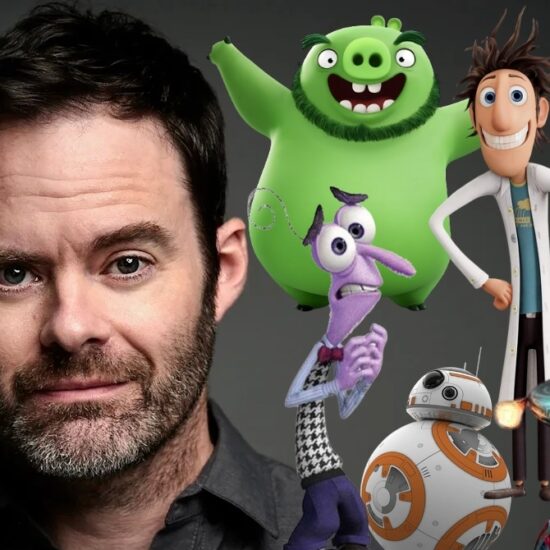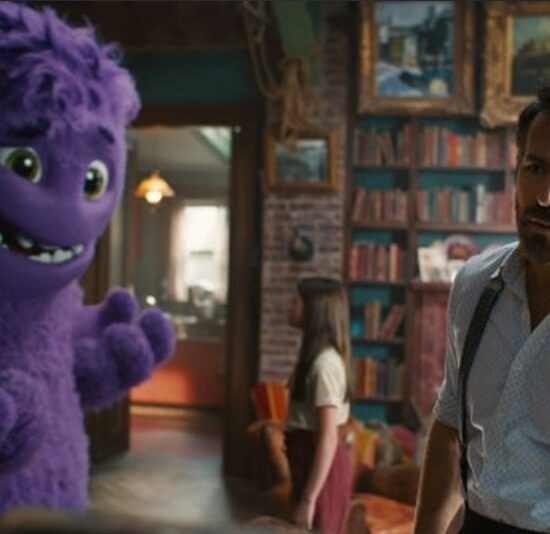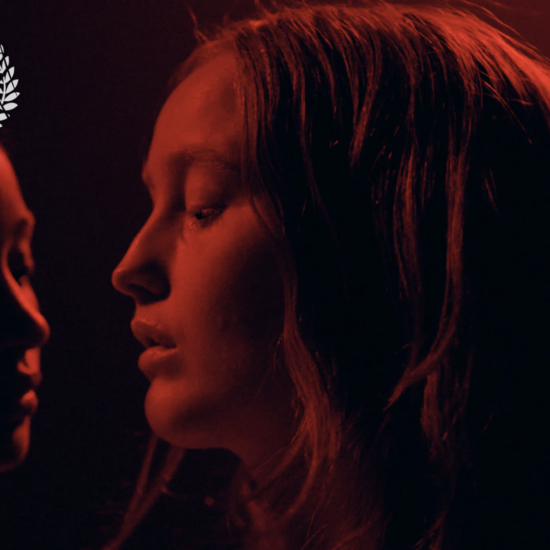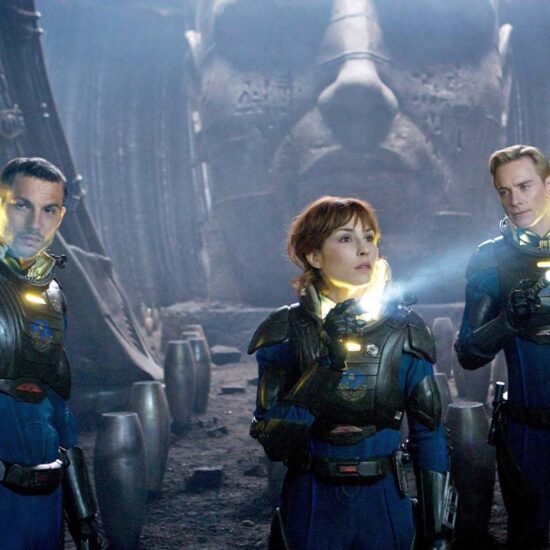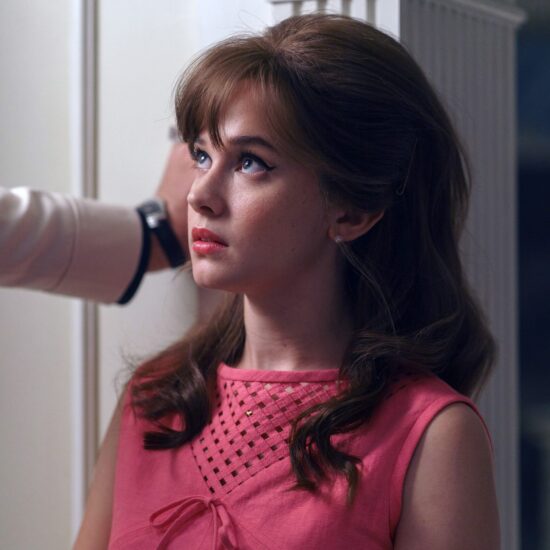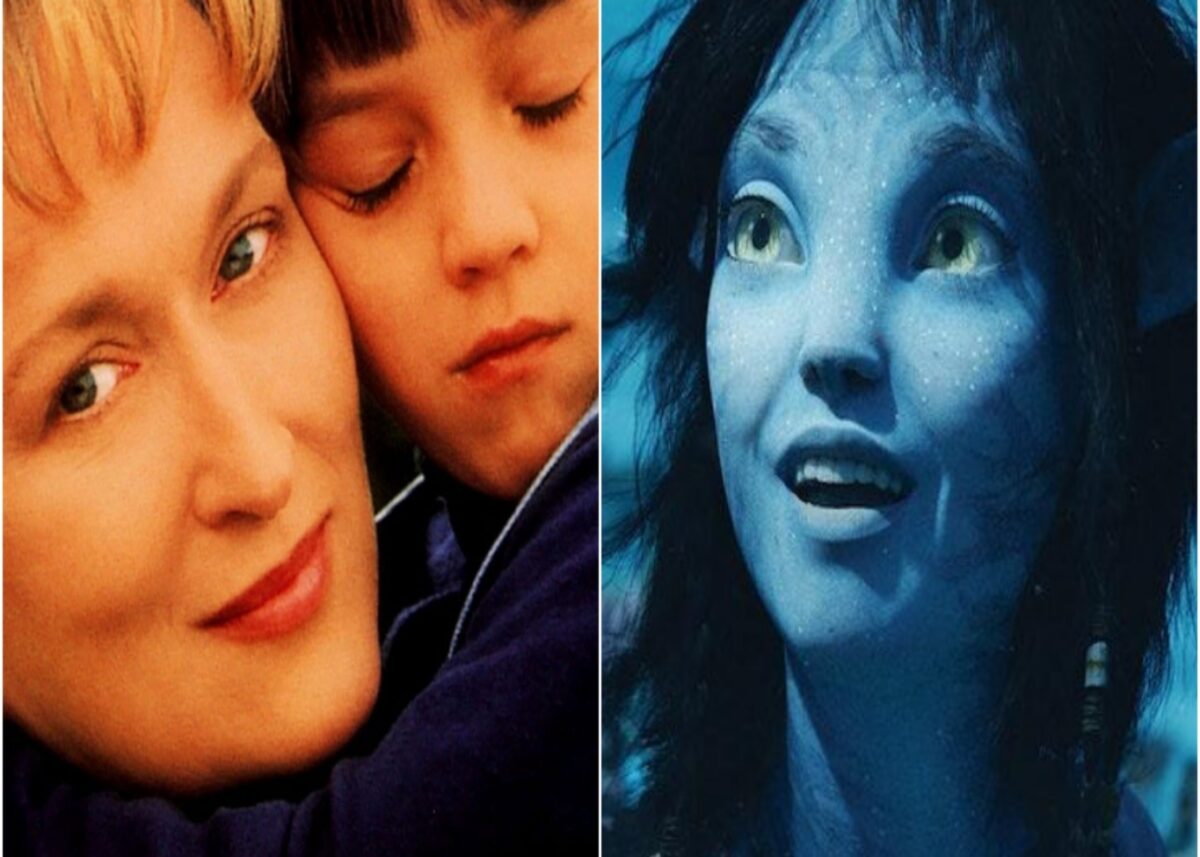
It goes without saying that TV shows and film, have the power to educate people on important subjects, Epilepsy is a subject that is often seen represented in media, and yet people are still misinformed.
Epilepsy is the 4th most common neurological disorder in the world, in which nerve cell activity in the brain is disturbed, causing reccuring seizures. Almost half of the time, doctors, nurses or people in general on popular TV shows or in movies respond inappropriately to seizures, although sometimes the person who has epilepsy on the show is usually accurately portrayed.
Epilepsy and epileptic characters are featured on many medical dramas such as House, Grey’s Anatomy, ER and The Good Doctor. Sadly most of the time these shows fail to educate and raise awareness, instead reinforce ignorant viewpoints and unsuprisingly create untrue stigmas.
These shows and films are some examples of instances when epilepsy was portrayed onscreen well or instances that helped to raise awareness on the subject.
Examples of Epilepsy in TV
The Young and Restless (1973)
Victor Newman is a character in this long running daytime American soap who was diagnosed with temporal lobe epilepsy, which is the result of a head injury he sustained in a car jacking several months earlier. Although this is a rare example of a long-running character in a tv programme with epilepsy, the show struggles to achieve its balance between educating and using it for shock and drama. CBS used the plotline as a forum to raise awareness about epilepsy. The story sees not only how Victor himself deals with his diagnosis, but how his family reacts as well.
EastEnders (2014)

Courtesy of BBC
EastEnders has received praise for featuring an epilepsy storyline. Nancy Carter, played by Maddy Hill, had her first seizure on the show in January 2014. Maddy Hill was terrified of the plot. Maddy stated “When I first found out that Nancy had epilepsy, I was absolutely terrified, just because I knew nothing about the illness. I didn’t know anyone who had epilepsy and I was very aware of wanting to be respectful to people who suffer with such a massive thing in day-to-day life.” Charity Epilepsy Action were called upon to provide advice on the script to ensure that epilepsy was depicted in the right way to help raise awareness as well as achieving a level of realism. Magazine Epilepsy Today stated “Nancy’s seizures are a brave step for the show and are becoming a dramatic fixture in the EastEnders landscape.”
Coronation Street (2010)
Weatherfield hairdresser David Platt, played by Jack P Shepherd, was diagnosed with epilepsy in 2010 after blacking out while driving. David’s epilepsy has been managed since his original diagnosis. He had a second seizure in front of stepson Max in 2015 when they were in the park feeding the ducks. David’s condition was raised again as a concern when he took on Gary Windass (Mikey North) in a boxing match in 2018. As an ongoing character, he controls his epilepsy with medication, healthy eating, exercise and no alcohol.
Teen Wolf (2011)
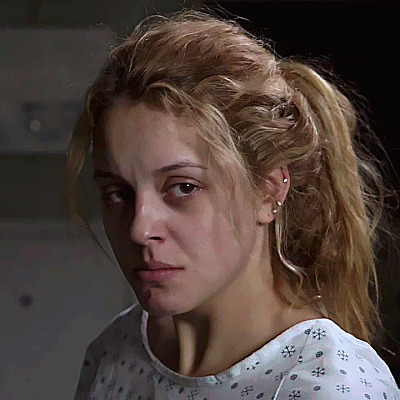
Courtesy of MTV
In season 2 of Teen Wolf we are introduced to Erica, a supporting character on the show, Erica suffered from a severe case of epilepsy when she was a human. When she was turned into a warewolf by Derek Hale her epilepsy is cured. When Erica is having a seizure in the second episode of season 2, the reaction to it and how she is helped is one of the most accurate on Teen TV shows. She goes on to describe the aura felt before a seizure which is something that is rarely mentioned on shows. In a later episode Erica described having a seizure in class that was so bad she accidentally urinated in her pants. Unfortunately she was surrounded by lesss than supportive students, she went on to describe how one was about to put a spoon in her mouth (which, contrary to popular belief, should not be used to prevent a seizing person from swallowing their tongue) until they saw the tag on her key ring that warned them not to. This did not however stop them from recording this, completely destroying her self esteem.
Deadwood (2004)
In this gritty HBO Western drama, the minister of Deadwood, Reverend Smith (played by Ray McKinnon) has epilepsy. He attributes his seizures to divine intervention. His seizures grow in frequency and severity throughout the season.
Movies that represent epilepsy
First Do No Harm (1997)
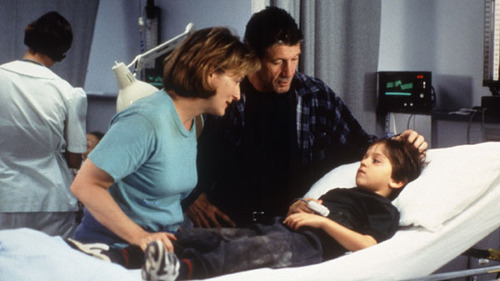
Courtesy of ABC
Meryl Streep stars in this TV movie in what is probably one of the best films about epilepsy with the best portrayal of the subject and everything that happens during each stage of it. The film follows the Reimuller family, Lori played by Streep is the mother of three children, the youngest son, Robbie (Seth Adkins), starts to have sudden falls and then a convulsive seizure. Robbie is taken to the hospital where a number of procedures are performed: a CT scan, a lumbar puncture, an EEG) and blood tests, something that people with this disorder are all too familiar with, he is soon diagnosed with epilepsy. Robbie is started on different types of drugs which cause dangerous side effects. Despite his mother’s frustration, the doctors just keep adding more drugs. The film takes us through the family struggling to pay for Robbies care, Doctors asking the family to consider surgery, his mother researching every possible option, his epilepsy getting worse and worse and the hospital using possibly fatal drugs on him. The film ends with Robbies seizures being eliminated and his mental faculties restored. Now although in most cases people end up being cured of epilepsy after years, in this case the ending was a very satisfying and moving one especially to those who are working towards being seizure free themselves.
Avatar: The Way of Water (2022)
Most people did not realize it but one of 2022’s biggest box office hits included a subplot that surrounded epilepsy. Kiri, Jake and Neytiri’s adopted daughter (voiced by Sigourney Weaver) is diagnosed with epilepsy after having a seizure underwater while at the Soul Tree. A medical doctor tells the Sully family her visual and emotional experiences are more likely to be caused by frontal lobe epilepsy. Throughout the film, Kiri is shown having heightened visual and auditory experiences which she beleives to be visions. The true cause of Kiri’s seizures and visions are left unexplained and upto interpretation by the end of the film by James Cameron. “Obviously the enigmas around Kiri are not resolved, and that’s by design,” Cameron told Digital Spy. Whereas the medical explanation seems like a great sense of representation for those living with epilepsy in real life. This was not exactly an example of epilepsy being portrayed well onscreen, but it is a big step as we do not often see this subject approached in massive cinematic blockbusters.
Control (2007)
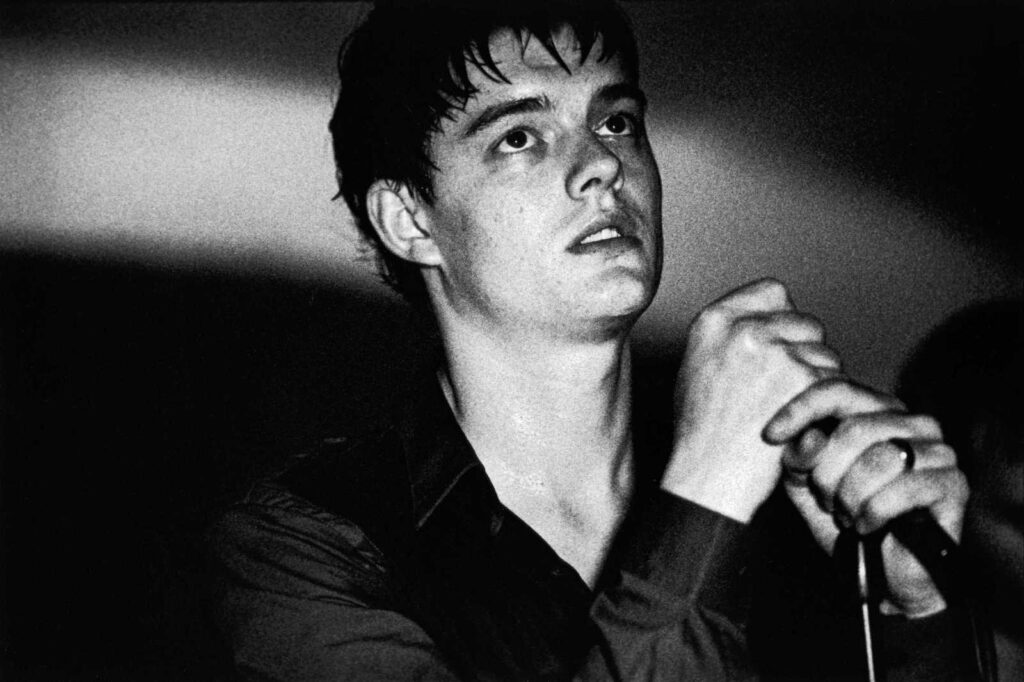
Courtesy of IMDB
Control is a 2007 British biographical film about the life of Ian Curtis, singer of the late-1970s English post-punk band Joy Division. Sam Riley’s portrayal of Ian Curtis in this visually- arresting film by Anton Corbijn has received many plaudits. During his job as an employment agent, Ian witnesses his client Corinne Lewis suffering a seizure. In December 1978 Ian suffers a seizure on the way back from the band’s first London gig. He is diagnosed with epilepsy and prescribed medications that leave him drowsy and moody. Learning that Corinne Lewis has died of a seizure, he pens “She’s Lost Control” about her. Ian suffers a seizure mid-performance. Riley’s bold depiction of Curtis having a seizure on stage received high praise.
The Andromeda Strain (1971)
A group of scientists investigate a virus from outer space in this sci-fi movie. The chief scientist Dr. Ruth Leavitt has epilepsy that she has concealed from her colleagues. When she experiences a tonic clonic seizure, they presume she has caught the deadly andromeda strain.
Garden State (2004)
Written and directed by Zach Braff, Garden State is a cult indie flick about Andrew played by Braff, a young troubled man’s return to his hometown of New Jersey. Once home, he meets a girl called Sam, played by Natalie Portman, who has epilepsy. A relationship, of sorts, develops. Although we do not see her having any seizures in the movie since she has been seizure-free for several years, her health insurance company is trying to make her wear a helmet to protect her in case she falls. So although the disability side is not portrayed we still see how people with epilepsy can be treated unfairly.
The Exorcism of Emily Rose (2005)
In this courtroom drama based on real events, the case of Emily Rose is considered. It focuses on a priest accused of negligent homicide. Emily was treated with epilepsy and psychosis medications. When her condition failed to improve, Father Richard Moore believed that Emily was being possessed by a demon. With the consent of Emily’s parents, Moore subjected Emily to an exorcism that ultimately failed. Moore surmised that Emily’s medications were to blame for the unsuccessful expulsion, as they paralyzed Emily’s brain activity and kept the demon out of reach. Rose died after he made her stop taking her epilepsy medicine to perform the exorcism.
Electricity (2014)
Lily O’Connor, a Northerner with epilepsy, finds out her brother, who she had believed to be dead, may be alive. She leaves her safe, routine life and goes to London to find him. Epilepsy colours her perceptions and the film shows how she views everyday objects and places as obstacles and dangers. She travels to London to try and find him, and the movie shows how her seizures and medication interact with her journey.
The Exploding Girl (2009)
This 2009 movie depicts the story of Ivy, a college student suffering from juvenile myoclonic epilepsy, who has returned home to Brooklyn for spring break. While she stays at her mother’s house, her childhood friend Al, also home from college, asks to crash on their couch as his parents have rented out his room. Over the course of the break, Ivy and Al spend most of their time together, strengthening their already deep bond, especially after Ivy’s distant college boyfriend breaks up with her via telephone. This character depicts life for someone with epilepsy in a realistic way – whether it’s taking medication, visiting the doctor, or simply going about her normal life.
Both film and TV writers could move to include more stories that raise awareness on this important subject, but when they do getting a genuine perspective when featuring an epileptic person or a storyline with epilepsy. Even starting small like remembering to add a warning to the start of episodes and movies with flashing lights makes a big difference.
For more information on Epilepsy visit Epilepsy Foundation.
Fangirl and Writer with a huge passion for entertainment.









